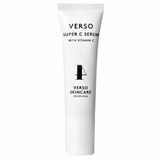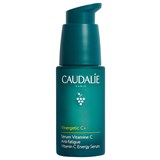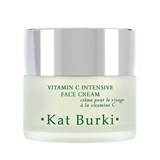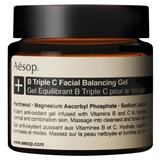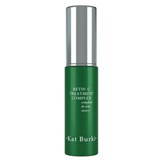
How To Add Vitamin C Into Your Skincare Routine
Beauty trends may shift, but the quest for glowing skin remains constant. Vitamin C has become a staple in skincare products due to its powerful brightening and dark spot-fading properties. Consistent use of vitamin C can restore that coveted glow, while also offering protection against sun damage and improving skin texture and volume. It's an essential ingredient for any skincare regimen.
Here’s a guide to understanding and incorporating vitamin C into your skincare routine, including tips on combining it with other ingredients and storing your products effectively.
WHY ADD VITAMIN C TO YOUR SKINCARE ROUTINE?
Vitamin C is an antioxidant that combats oxidative stress—a natural part of aging exacerbated by UV radiation, pollution, and other environmental factors. This stress can damage cells, proteins, and DNA, leading to premature aging, collagen loss, and pigmentation. Integrating vitamin C into your skincare routine helps defend against these stressors, and using it with a broad-spectrum SPF enhances protection against UV rays and pollution.
Vitamin C also aids in repairing damage caused by oxidative stress, promoting skin regeneration, and supporting collagen and elastin production. These proteins are essential for maintaining firm, plump, and healthy skin.
WHEN AND HOW TO USE A VITAMIN C SERUM
For optimal benefits, apply vitamin C serum in the morning. It works best in synergy with SPF to protect against UV radiation. Although it can be used at night, it might interact with other nighttime products like retinol, increasing skin sensitivity.
Apply vitamin C serum after cleansing and before moisturizing. Allow a few minutes for it to absorb before layering other products. While daily use is generally beneficial, the frequency depends on the product’s formulation and your skin type. If you experience dryness or irritation, consider using it every other day.
We love: Caudalie Vinergetic C+ Vitamin C Energy Serum & VERSO SKINCARE Super C Serum
TYPES OF VITAMIN C PRODUCTS
Vitamin C is commonly found in serums, but also in moisturizers, face masks, and eye creams. The most stable and effective form is l-ascorbic acid. Other types include ascorbyl glucoside (water-soluble) and ascorbyl palmitate (oil-soluble), which are suitable for sensitive skin. Tetrahexyldecyl ascorbate is a newer, more potent form that penetrates deeper and is absorbed faster.
COMBINING VITAMIN C WITH OTHER SKINCARE INGREDIENTS
While vitamin C is versatile, it’s important not to overload your skin. Use it in the morning and save other active ingredients like retinol and exfoliating acids for your evening routine. Pairing vitamin C with hyaluronic acid can enhance hydration and counteract any dryness.
USING VITAMIN C WITH RETINOL
Although both vitamin C and retinol are beneficial, using them together can cause irritation. It’s best to apply vitamin C in the morning and retinol at night for a balanced routine. Incorporating SPF during the day completes an effective anti-aging regimen.
USING VITAMIN C WITH NIACINAMIDE
Vitamin C and niacinamide work well together and can be used simultaneously without issues.
STORING VITAMIN C PRODUCTS
Vitamin C is sensitive to light and air, which can degrade its effectiveness. To maintain potency, store your products in airtight, dark-colored containers. Ensure they are tightly sealed after use and keep them in a cool, dark place.
FINAL THOUGHTS ON VITAMIN C IN YOUR SKINCARE ROUTINE
Whether you're aiming for more radiance, fading pigmentation, or tackling fine lines and loss of firmness, vitamin C is a powerful addition to any skincare routine. It not only helps achieve these skin goals but also offers protection from UV rays and pollution. Select a formula suited to your skin type and sensitivity, apply it every morning before moisturizer and SPF, and enjoy the noticeable improvements in your skin over time.

